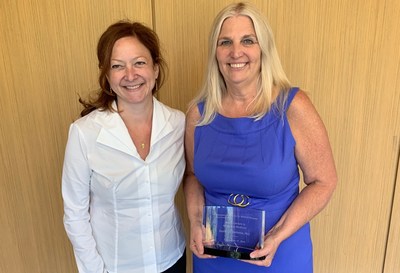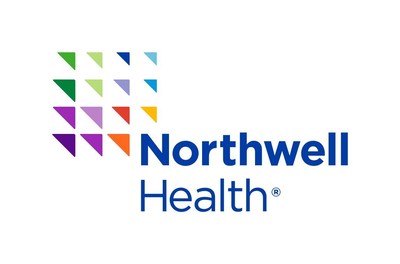The Feinstein Institutes for Medical Research hosted a Marsh Lecture by a professor of neurological surgery, Associate Director at Kentucky Spinal Cord Injury Research Center Susan J. Harkema, PhD, from the University of Louisville, who discussed how epidural stimulation can improve recovery after a spinal cord injury.
|
MANHASSET, N.Y., Sept. 18, 2019 /PRNewswire/ -- The Feinstein Institutes for Medical Research hosted a Marsh Lecture by a professor of neurological surgery, Associate Director at Kentucky Spinal Cord Injury Research Center Susan J. Harkema, PhD, from the University of Louisville, who discussed how epidural stimulation can improve recovery after a spinal cord injury. Dr. Harkema, who also serves as research director of the Frazier Rehab Institute and Director of the NeuroRecovery Network, has focused recent research on the use of electrical currents delivered through an implanted device to the lower part of the spinal cord.
The Marsh Lecture is given by visiting prominent scientists who share their expertise and establish collaborations with Feinstein Institutes investigators. Dr. Harkema presented to researchers, physicians and administrators on September 17. Dr. Harkema recently published on the topic of neuromodulation in the New England Journal of Medicine and JAMA Neurology, among other prominent medical journals. "Our brain and spinal cord are the control panels of our body," said Dr. Harkema. "Through neuroplasticity, the neurons in the spinal circuitry adjust their activity to the respond to any changes in the environment. Redistribution of these nerve cells is often needed to help individuals recover from an injury or disease affecting the body." Dr. Harkema emphasized that the brain and spinal cord are connected, communicating with each other to make the body move. Neuroplasticity aids in recovery after any injury. She suggested that the spinal cord can learn, forget and relearn movements including standing and taking a step. The key to training the spinal cord is task specific retraining and incorporating intent such as, thinking about stepping every time the person took a step. Although a part of the spinal cord is broken, the spinal cord can relearn how to connect with the brain if it is given a new pathway with epidural stimulation and locomotive training, she said. Dr. Harkema is collaborating with Ona E. Bloom, PhD, professor in the Institute of Molecular Medicine at the Feinstein Institutes, who directs the Laboratory of Spinal Cord Injury Research, on projects related to spinal cord injury, including a study to identify biomarkers of functional recovery. "Dr. Harkema is leading a new field of bioelectronic medicine for spinal cord injury patients," said Kevin J. Tracey, MD, president and CEO of the Feinstein Institutes. "Her Marsh Lecture highlighted her efforts that should improve nobility of patients." The Feinstein Institutes Marsh Lecture was established as a forum for renowned scientists to share their expertise with Feinstein Institutes investigators. The series was made possible by an endowment from the late Leonard Marsh and his family, the Marsh Lecture honors the memory of Leonard Marsh, co-founder of Snapple Beverage Corporation and a major supporter of the Feinstein Institutes. Leonard Marsh's legendary enthusiasm for new ideas and innovations continue to inspire the Feinstein Institutes scientific faculty and staff. For more information on this and upcoming Marsh Lectures, click here. About the Feinstein Institutes The Feinstein Institutes for Medical Research is the research arm of Northwell Health, the largest health care provider and private employer in New York. Home to 50 research labs, 2,500 clinical research studies and 4,000 researchers and staff, the Feinstein Institutes is raising the standard of medical innovation through its five institutes of behavioral science, bioelectronic medicine, cancer, health innovations and outcomes, and molecular medicine. We're making breakthroughs in genetics, oncology, brain research, mental health, autoimmunity, and bioelectronic medicine – a new field of science that has the potential to revolutionize medicine. For more information about how we're producing knowledge to cure disease, visit feinstein.northwell.edu. Contact:
SOURCE The Feinstein Institutes for Medical Research |






